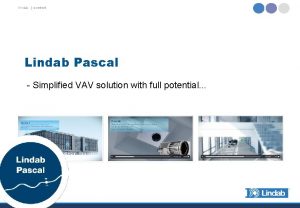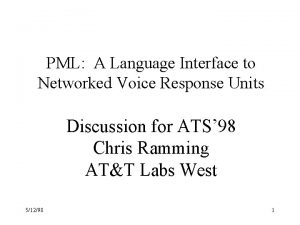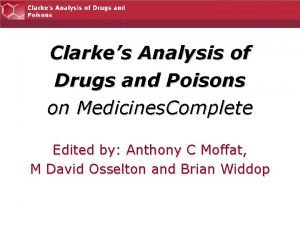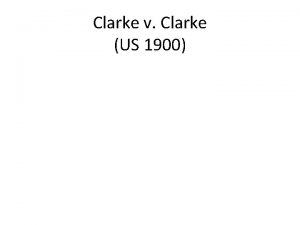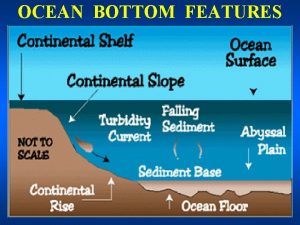Future Assessment of VRU Safety Features Nicholas Clarke








![“A faster penetration of [AEB] technologies into new cars will make it more realistic “A faster penetration of [AEB] technologies into new cars will make it more realistic](https://slidetodoc.com/presentation_image/05f5a3a12d41f591823a1057393f7792/image-9.jpg)


- Slides: 11

Future Assessment of VRU Safety Features Nicholas Clarke Chief Executive Officer July 2013

Australian Road Fatalities by Road User Source: BITRE Australian Road Deaths Database

Passive safety tests CURRENT FUTURE* § 64 km/h 40% frontal offset § Current tests § 50 km/h MDB side impact § New AE-MDB side impact? (replaces MDB side impact) § 29 km/h side pole § pedestrian § whiplash § roof crush (from 2014) § New oblique side pole? (replaces side pole) § Full frontal? § 64 km/h 25% frontal offset test? * Under consideration

Remove the dummy? "90% of crashes in the US involve some form of human error. Automation is the key in removing that human element. ” David Strickland - NHTSA Administrator (ESV 2013)

The Change • Previously, passive safety test performance differentiated the good from the bad. • This differentiation point has shifted now to active safety; Safety Assist Technology (SAT).

SAT examples Source: Scientific American Magazine 2008 with ANCAP overlay

Autonomous Emergency Braking (AEB) • Detects objects in path of vehicle • Alerts driver to hazard • Applies brakes (strongly) if beyond human intervention Source: Thatcham Research Centre UK

Active safety tests CURRENT § Pass or Fail § Meet Functional Definition FUTURE* § Autonomous Emergency Braking: o Euro NCAP test protocols for City & Interurban AEB completed. o Performance tests from 2014 impact speed reduction. o Key elements tested: − Autonomous braking − Forward collision warning − Human machine interface o ANCAP will take Euro NCAP results (developing some capacity in Australia). o Leaves a void in ANCAP testing when vehicles not tested by Euro NCAP. * Under consideration
![A faster penetration of AEB technologies into new cars will make it more realistic “A faster penetration of [AEB] technologies into new cars will make it more realistic](https://slidetodoc.com/presentation_image/05f5a3a12d41f591823a1057393f7792/image-9.jpg)
“A faster penetration of [AEB] technologies into new cars will make it more realistic for the European Union to reach its target to cut road deaths by 50% by 2020. Consequently, Euro NCAP has decided to include AEB assessments as part of the overall star rating from 2014 onwards and hopes that European authorities will soon require AEB as mandatory on all new vehicle types. ” Michiel van Ratingen: Secretary-General Euro NCAP 2012

The Goal Where do we need to be to achieve a 50% reduction in deaths and injury by 2020? • Taking ACTION to encourage & ensure swift uptake of SAT, in particular Autonomous Emergency Braking. • Taking ACTION to continue to raise the bar for vehicle safety performance. • Taking ACTION to publicise and reward those manufacturers who introduce SAT. • Taking ACTION to improve our responsiveness to and uptake of vehicle safety initiatives from around the world.

Accept nothing less. ancap. com. au
